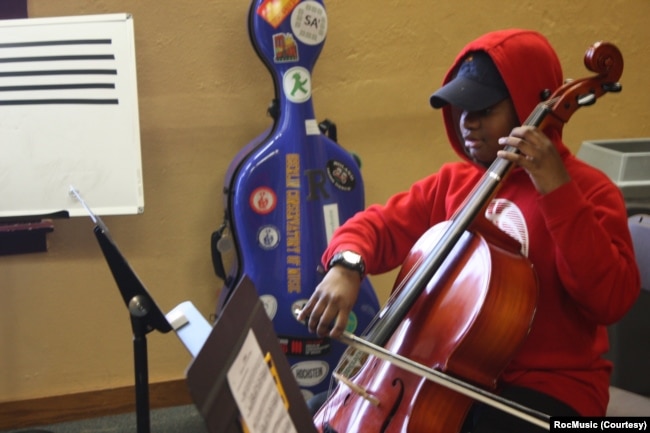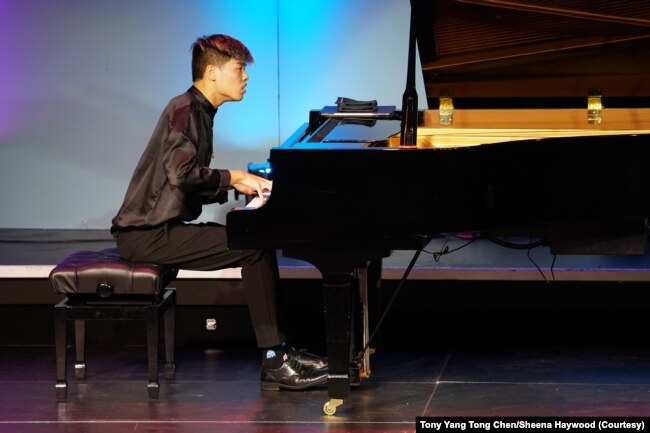International Students also Learn outside of Class

The cost of attending a college or university in the United States is very high. Education Data Initiative, an organization that collects data on the U.S. education system, says the average college student spends more than $50,000 each school year.
Some international students receive scholarships or financial aid. But many have to pay full price and often need to work outside of their class and study hours. The U.S. Immigration and Customs Enforcement agency says students on an F-1 visa are permitted to work both on, and off campus, as long as they follow certain rules.
Students can also get experience with American work culture by volunteering for organizations outside of their study area.
Learning English recently spoke with two international students about what they learned about American culture from their jobs.
The Indian pollster
Khushi Agnish, from India, recently finished her undergraduate studies at Quinnipiac University in the northeastern state of Connecticut.
Agnish received a scholarship from Quinnipiac. But she needed a job to cover extra costs. She got a job making public opinion research phone calls for the Quinnipiac University Polling Institute. The poll researches a wide range of topics such as tensions between Russia and Ukraine and New York City’s new mayor.
Agnish said she made up to 100 phone calls a night for the work. One thing she learned was how to confidently speak on the telephone with Americans. She said sometimes Americans had trouble understanding her accent.

An example of information that came from the Quinnipiac University poll in 2015.
“People just think if it's an Indian person calling or if they're talking to an Indian person, it's probably a scam. Other than that, a lot of times people were actually really nice.”
Agnish also worked at the campus technology center and volunteered at a hospital as a sexual assault counselor. At the technology center, she helped people who had computer problems, like lost files. At the hospital, she helped people who said they had been assaulted to contact the police and fill out paperwork.
Agnish said she learned that in America “people are not just sitting at home or telling girls to sit at home.” She said that is different than in India, where many women do not go out alone because they are concerned about rape.
“I was glad I could help in some way,” she said.
The piano player teaching kids
Tony Yan Tong Chen just completed his undergraduate degree at the Eastman School of Music in Rochester, New York. He is now applying to study for an advanced degree in piano performance.

A student practices with RocMusic in Rochester, New York. (Photo courtesy of RocMusic)
He came to the U.S. from New Zealand with a strong background in classical music. Along with piano, he is a skilled string musician.
Chen said the best jobs at Eastman for piano players are saved for graduate students. He could do things like work in an office or direct people to their seats during musical performances. He chose not to do those jobs.
Instead, Chen got a job with ROCmusic to teach young students from Rochester schools how to play music in an orchestra. Many of these students lack a musical background and do not know how to talk about music. “I had to change my vocabulary to make it accessible and help them improve,” he said.
“When certain students even just show up, that will really please me. So I think in general, it’s just really celebrating small successes.”

Tony Yang Tong Chen studied piano at the Eastman School of Music.
Academic advice
Like other international students, Agnish and Chen’s work experience gave them extra money and added to their understanding of American culture.
But one professor who studies education had a warning for international students: do not let your work prevent you from completing your degree on time.
Walter Ecton is an assistant professor at Florida State University. He and two other professors recently wrote a paper on students who work while attending college. The paper noted that students who work are about 20 percent less likely to complete their degrees than those who do not. He said the best amount of work for students is five to 10 hours a week.
Ecton said it is likely that international students who work while going to school learn a good deal about American culture, new kinds of people and work routines. But they need to be sure they do not put themselves in a bad situation by delaying their progress.
“For international students, many of them are paying really large amounts to be over in the United States. They need to work to support themselves, but they also want to get their degrees as quickly as possible.”
If the students can finish on time and move on to the next part of their lives, a little bit of work can be, as Chen put it, a way to “get out of the music school bubble … and feel more integrated into the community.”
Words in This Story
campus –n. the location of a school
undergraduate –n. the first level of higher education in the U.S.
poll –n. a public opinion survey
accent –n. a way of pronouncing words that occurs among the people in a particular region or country
scam –n. a dishonest way to make money by deceiving people
counselor –n. a person who provides help or advice
assault –n. a physical attack
apply –v. to ask for the chance to enter or attend something, such as a school
string –adj. a kind of instrument that makes a sound because of strings, such as a guitar, violin or cello
graduate –adj. a student working on an advanced degree
accessible –adj. understandable
certain –pronoun. one member of a group
routine –n. something that happens often or usually
bubble –n. a protected area, an area not influenced by outside forces
integrate –v. to become a member of a larger group
https://learningenglish.voanews.com/a/international-students-also-learn-outside-of-class/6934588.html